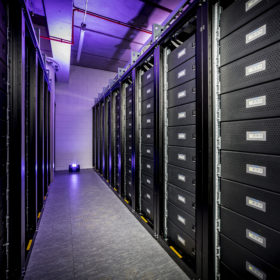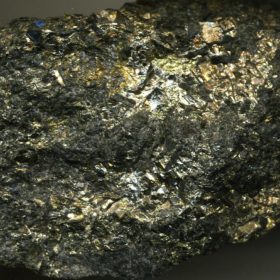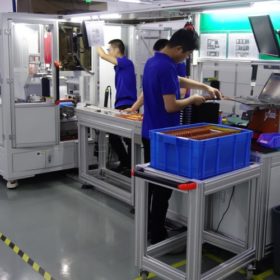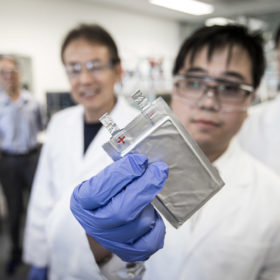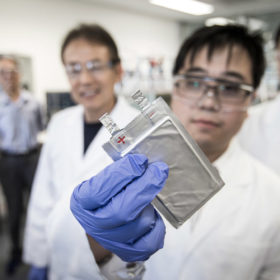The best battery for grid level energy storage
A new paper published by researchers at China’s Tianjin University examines the state of the art in grid level energy storage, outlining the pros and cons of various battery technologies being deployed on grids around the world, and remaining challenges that could be overcome if research is pushed in the right direction.
For a bigger battery, just add manganese
Scientists at the University of Southern Denmark working with sodium-ion batteries found that a new electrode material incorporating iron, manganese and phosphorous could increase both the power and capacity of the batteries.
Pyrazine polymer PHATNs up cathode in sodium-ion batteries
Scientists at the University of Maryland have developed an organic polymer electrode which they claim demonstrates stable function for a sodium-ion battery over 50,000 cycles and also offers encouraging performance in magnesium-ion and aluminum-ion storage devices.
‘Investment in nickel production needs to happen now’
Rather than helping electric vehicle take-up by driving down costs to parity with traditional engines, the low price of nickel at the moment is deterring investors and could cause a supply shortage that holds back electromobility in a few years’ time.
Eliminate hydrogen for better battery performance, scientists say
Scientists at the University of California, Santa Barbara who are working with sodium-ion batteries have found that the unintended presence of hydrogen is to blame for many of the technology’s shortcomings in terms of degradation and performance loss. Keeping hydrogen out of the materials throughout production could allow sodium-ion batteries to achieve performance levels competing with their lithium-ion counterparts.
Australia: Sodium-ion batteries get commercial rollout as li-ion alternative
Sydney Water’s Bondi sewage pumping station will soon be storing solar energy through the use of 30 kWh of sodium-ion batteries, a cheaper alternative to the traditional lithium-ion batteries.
Report eyes alternative battery technologies due to socio-ecological concerns
Lead, sulphuric-acid, nickel, cobalt and rare earth metals are highly toxic and have adverse impacts on the environment and the societies in which they are mined. As the EU is looking to become a world leader in battery production, a report considers new battery technologies – such as sodium-ion – which would have less negative impacts.
Australian researchers unveil new sodium-ion battery design
Scientists from the University of Wollongong in Australia have developed battery cells based on sodium-ion technology, which the university says can achieve excellent cycling stability and easily be scaled up for mass production.
